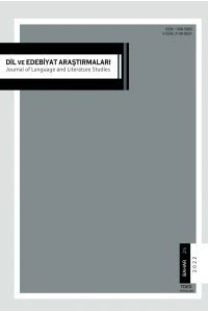Translator’s Notes: Some Considerations From The Perspectives Of Voices And Metafiction
Bu yazıda Bernard Suits tarafından yazılıp Süha Sertabipoğlu tarafından Türkçeye kazandırılan ÇekirgeOyun, Yaşam ve Ütopya adlı kitap incelemesi üzerinden sosyo-kültürel ve çeviri yönünden ses ve metakurgu çerçevesinde çevirmenin notları konusu ayrıntılı bir şekilde incelenerek, aşağıdaki sorulara cevap bulmak hedeflenmiştir: çeviri eserdeki çevirmenin notlarının işlevleri nelerdir? Daha önceki bazı çalışmalarda belirtildiği üzere, metakurgu türü bir esere çevirmen notları entegre etme herhangi bir dezavantaj oluşturmakta mıdır ve çevirmenin notları sayı ve içeriğinin keyfi olarak görülebilir mi? Çalışma çevirmen notlarının metakurgusal metni zenginleştirdiğini, çeşitli işlevler yerine getirdiğini, sosyokültürel ve çeviri yönünden metni çeşitli “ses”lerle desteklediğini ve metakurgu adı verilen türe doğası gereği hizmet ettiğini ortaya koymaktadır.
Translator’s Notes: Some Considerations From The Perspectives Of Voices And Metafiction
This paper aims to revisit translator’s notes with a detailed analysis within the framework of the sociocultural and translational voice, and metafiction through a translated book entitled “The Grasshopper, Games, Life and Utopia” by Bernard Suits, translated into Turkish by Süha Sertabiboğlu. It aims to explore the following research questions: the functions of Translator’s Notes in the translated book, identification of whether integrating translator notes in a work of metafiction creates any disadvantage, as mentioned in earlier studies, and whether the number and content of the translator’s notes is arbitrary. The study reveals that the translator’s notes fulfil several functions, that they enrich the metafictional text, that they are supported by the varied sociocultural and translational “voices” and that they serve the intended purpose of the genre, namely, metafiction, by its very nature.
